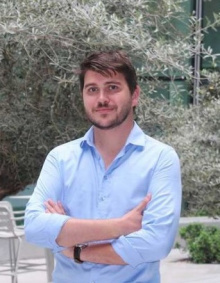Studying the population dynamics of transposable elements: new avenues for research

YANN BOURGEOIS
University of Portsmouth, UK
Link to seminar: https://umontpellier-fr.zoom.us/webinar/register/WN_7DXuP07HSP-FDlBcSFLqEw
Summary
Quantifying the factors that drive the accumulation of genetic variation in genomes is essential to understand the rules of life and has widespread applications in agronomy, health and conservation. However, our understanding of the determinants of genetic diversity is still strongly biased towards the study of point mutations such as single nucleotide polymorphisms (SNPs). More must be done to understand the evolutionary dynamics of structural variation. A common type of such variation includes transposable elements (TEs). These elements are among the most variable genomic features across the living world, and can have a dramatic effect on their host’s fitness. In this presentation, I will introduce some of the most recent advances in our understanding of TEs, adopting a population genetics perspective. I will show how combining information about TEs and flanking SNPs may help addressing key questions, such as the distribution of TEs fitness effects. I will draw examples from my own research to illustrate the potential of model-based studies to infer the population dynamics of TEs. I will conclude with an open discussion of possible applications and future developments of research on the population dynamics of TEs.
Recent publications:
1. Bourgeois, Y. & Boissinot, S. On the population dynamics of junk: A review on the population genomics of transposable elements. Genes 10, (2019).
2. Ruggiero, R. P., Bourgeois, Y. & Boissinot, S. LINE Insertion Polymorphisms Are Abundant but at Low Frequencies across Populations of Anolis carolinensis. Frontiers in Genetics 8, 1–14 (2017).
3. Bourgeois, Y., Ruggiero, R., Hariyani, I. & Boissinot, S. Disentangling the determinants of transposable elements dynamics in vertebrate genomes using empirical evidences and simulations. PloS Genetics 1–32 (2020) doi:10.1101/2020.04.12.037754.
Contact: muriel.gros-balthazard@ird.fr
Contact du Comité SEEM: seem@services.cnrs.fr. Contact du Labex CEMEB: cemeb-gestion@umontpellier.fr


